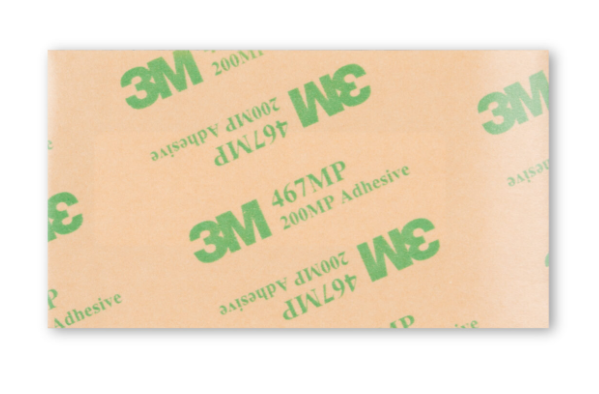
What types of products typically use RFID stickers?
RFID technology is revolutionizing industries worldwide. RFID enables quick, efficient, and automated identification of products and assets by using radio waves to communicate between a tag and a reader. One of the most versatile applications of this technology is through RFID stickers. These small, adhesive tags are embedded with RFID chips to store information such as serial numbers, product IDs, or inventory data. The result is streamlined processes and improved tracking across various industries. In this blog post, we will explore the types of products that typically use the RFID sticker, offering insight into how they enhance functionality, efficiency, and security.
Retail Products: Enhancing Inventory Management
The retail industry is one of the largest adopters of RFID stickers. Retailers use RFID stickers on products to track inventory in real-time, minimizing the need for manual stocktaking and reducing errors in stock counts. By attaching RFID stickers to items such as clothing, shoes, electronics, and accessories, businesses can automatically update stock levels as products are moved through the store or warehouse.
For example, major retailers like Walmart and Macy’s have successfully integrated the RFID sticker into their supply chains to improve inventory visibility. This allows them to identify out-of-stock items quickly, optimize product placement on shelves, and prevent loss through theft or misplacement. RFID stickers also enable self-checkout systems, where customers can simply walk through a reader without scanning individual items. The efficiency gained from using RFID technology improves both the customer experience and operational cost-effectiveness for retailers.

RFID Stickers in Healthcare Products: Ensuring Patient Safety
Patient safety and accurate medical equipment tracking are paramount in the healthcare industry. RFID stickers are often applied to medical products like surgical instruments, medicine bottles, patient wristbands, and medical devices to ensure they are appropriately used and maintained correctly.
For instance, pharmaceuticals use RFID stickers to prevent counterfeit drugs from entering the supply chain. Hospitals use RFID tags on equipment to track their location in real-time, ensuring that critical tools are available when needed. RFID stickers also help improve patient safety by enabling hospitals to track and administer medications correctly. Linking patient wristbands to RFID systems allows healthcare providers to monitor treatments and reduce the risk of errors.
Logistics and Supply Chain Products: Boosting Efficiency
RFID stickers are particularly beneficial in logistics and supply chain management. Attaching RFID stickers to pallets, containers, and items allows companies to track goods at every supply chain step. This technology is used in warehouses, shipping centres, and customs checkpoints to streamline operations and improve accuracy.
A well-known example is how companies like Amazon use the RFID sticker to track inventory in their fulfilment centres. The system allows real-time stock and shipment status updates, helping prevent errors and delays. RFID stickers also reduce human error by automating processes like item scanning, sorting, and storage. This automation speeds up warehouse operations and ensures products are delivered on time, improving customer satisfaction and operational efficiency.

Automotive Products: Enhancing Security and Maintenance
The automotive industry has also benefited from using the RFID sticker in vehicle tracking and parts management. Manufacturers and fleet operators use RFID stickers to manage inventory, track part maintenance history, and ensure vehicle security.
For example, RFID stickers can be applied to tyres, batteries, and car parts to track their history, ensuring that replacement parts are used at the correct intervals. Fleet operators often use RFID technology to track vehicles, monitor their location, and provide security against theft. In this way, RFID stickers contribute to the safety and reliability of the automotive industry, helping manufacturers and operators keep track of critical components throughout their lifecycle.
RFID Stickers in Consumer Electronics: Simplifying Warranty and Registration
The RFID sticker enhances the customer experience in consumer electronics by simplifying product registration, warranty validation, and inventory management. Many electronic devices, such as smartphones, laptops, and home appliances, feature RFID stickers that contain unique identifiers.
By scanning the RFID sticker, consumers can easily register their products online, ensuring warranty coverage and access to support services. For manufacturers, these stickers streamline the process of inventory management and distribution. They also allow for better control over product recalls, as items with RFID stickers can be quickly identified and removed from circulation in case of safety concerns. Overall, RFID stickers make it easier for consumers and manufacturers to keep track of electronics, leading to improved service and satisfaction.

Event Management Products: Streamlining Access and Security
The RFID sticker streamlines access control in the event management industry, improving security and enhancing the attendee experience. RFID tags are often placed on tickets, wristbands, and passes, allowing for quick scanning and verification at event entrances.
For example, large music festivals and sporting events utilize RFID wristbands for ticketing and access control. These wristbands not only grant entry but also allow for cashless payments at food vendors or merchandise booths. Event organizers can track attendees with an RFID sticker to monitor crowd movement, reduce wait times, and enhance security. This innovative use of RFID technology significantly enhances the experience for both event-goers and organizers.
Library Products: Enhancing Borrowing and Return Processes
In libraries, RFID stickers automate book borrowing and return, reducing manual intervention and streamlining operations. By placing RFID stickers on books, DVDs, and other materials, libraries can quickly check out and check in items without scanning each barcode manually.
This not only saves time but also improves accuracy in tracking library materials. The RFID sticker allows library staff to locate items quickly, reducing the time spent searching for misplaced books or media. Furthermore, RFID technology can help prevent theft by triggering alarms when items are not properly checked out. RFID technology simplifies the borrowing process for patrons, offering self-service kiosks that allow them to check out books at their convenience.

The Versatility and Efficiency of RFID Stickers
RFID stickers are an incredibly versatile tool utilized across various industries to improve efficiency, security, and customer experience. Whether tracking retail products, ensuring patient safety in healthcare, streamlining supply chains, or enhancing event management, an RFID sticker has proven invaluable. Their ability to provide real-time tracking, reduce human error, and automate processes has made them indispensable in modern industries. The RFID sticker offers a reliable and cost-effective solution for businesses and consumers looking to improve operational efficiency and gain better control over their products.


